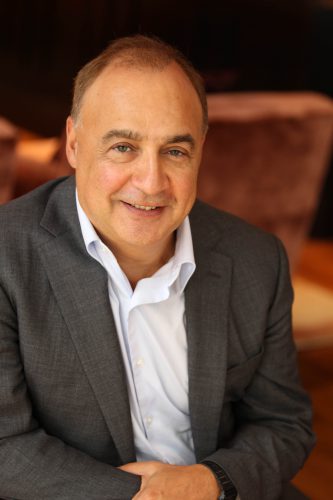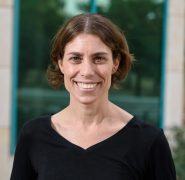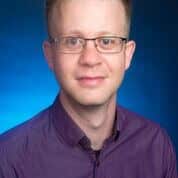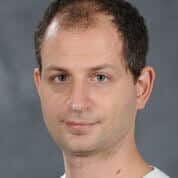The three researchers, two from the Weizmann Institute and one from the Technion, will each receive a grant of $100 - one of the largest awards in the world awarded to researchers at the beginning of their career

The Blavatnik Family Foundation, the New York Academy of Sciences and the Israel National Academy of Sciences announced today the winners of the 2019 Blavatnik Prizes for Young Scientists in Israel.
The Blavatnik Awards honor promising young scientists and engineers for their extraordinary achievements, research innovation and the inherent promise of scientific discoveries in the future. The winners are not limited in the use they wish to make of the prestigious prize money.
This is the second year in which the prizes are awarded in Israel to scientists and engineers up to the age of 42 for groundbreaking research in three fields - life sciences, chemistry, and physical sciences and engineering.
This year the winners were selected from 33 candidates from seven universities in Israel. The members of the award committee include Prof. Nili Cohen, president of the Israel National Academy of Sciences, as well as the chairmen of the committee Prof. Aharon Chahanover, Nobel laureate and member of the academy, and Alice Rubinstein, president and CEO of the Academy of Sciences in New York. The professional committee that selected the winners included leading scientists and engineers, senior members of the scientific community in Israel.
And these are the recipients of the Blavatnik Prizes for Young Scientists for 2019:

Life Sciences - Dr. Michal Rivlin (40), Senior Scientist in the Department of Neurobiology, Weizmann Institute . In the reasons for the award, the judges elaborate: "Dr. Rivlin's groundbreaking work illuminates in a new light the understanding of the way we see. Her research led to a paradigm shift in the understanding of the retina, the light-sensitive part of the eye where all visual information processing processes begin. Dr. Rivlin's work discovered that cells in the retina can dynamically change their function, and transmit different types of information to the brain in response to stimuli such as light intensity or movement in space."
"Her findings challenge the common assumption that the responses of cells in the retina are derived from its anatomy and are therefore fixed and unchangeable. Her discoveries raise fundamental questions about the way we see, and have implications for our understanding of the mechanisms responsible for neural calculations in the brain, the treatment of retinal diseases and blindness, and the development of computer vision technologies."
Chemistry - Dr. Moran Berkovich (36), associate professor in the Faculty of Mechanical Engineering, Technion.

The judges' reasoning: "Dr. Berkovich is recognized for his innovative research in the field of microflow, which contributes to a basic understanding of the chemical and physical behavior of flowing materials in tiny dimensions, as well as to the invention of groundbreaking technologies in this field. For his multidisciplinary research, which combines fluid mechanics , electric fields, heat transfer, chemical reactions and biology, there is a potential not only to minimize existing processes, but also to create new capabilities and tools that are not possible on a large scale. For example, Dr. Berkovich and his team at the Technion have developed a series of lab-on-a-chip technologies that significantly shorten the time of traditional molecular analysis techniques as well as improve their sensitivity. This technology enables rapid and targeted diagnosis of diseases, and also provides scientists with new research tools. In his lab at the Technion, a variety of new technologies with application potential in many fields are being developed - from the analysis of individual cells, through adaptive optics, to XNUMXD printing in tiny dimensions.
Physical Sciences and Engineering - Dr. Erez Berg (41), Associate Professor in the Department of Condensed Matter Physics, Weizmann Institute

"Dr. Berg conducted creative and influential theoretical studies to gain valuable insights into quantum materials - materials whose electronic properties cannot be understood with the help of concepts from textbooks in contemporary physics." Dr. Berg developed a unique computational method for studying an important phenomenon, called quantum criticality behavior in metals, which is common in many quantum materials. Recently, he envisioned a new method by which superconducting devices can be switched between topological and non-topological states, which has significant potential in the storage and modification of quantum information. His research has provided important insights into the physics principles behind a wide range of unusual phenomena in quantum materials, which will help accelerate the application of these materials in the next generation of electronics, in the fields of quantum computing, magnetic resonance imaging (MRI), and superconducting power lines."
"For more than 70 years, Israeli innovation has led to breakthrough discoveries in science and technology," said Len Blavatnik, founder and chairman of Access Industries and head of the Blavatnik Family Foundation, "these excellent researchers reflect the enormous potential of the new generation of scientists in shaping the future. It is our duty to support leading and innovative researchers at the very beginning of their journey, if we want to promote significant scientific breakthroughs that will leave a mark."
Alice Rubinstein, president and CEO of the Academy of Sciences in New York, said that "these sensational and innovative discoveries by the young researchers who are being recognized are inspiring. These future leaders join an extraordinary line of talented and dedicated graduates of the Blavatnik Young Scientists Program. We look forward to celebrating their revolutionary discoveries in the future."
Prof. Neely Cohen, President of the Israel National Academy of Sciences, stated that "together with the Blavatnik Family Foundation and the New York Academy of Sciences, we are happy to encourage scientists in the early stages of their research. We are proud to honor and support these extraordinary scientists with this prestigious award. Each of them is evidence of a wonderful talent, a passion to expand the boundaries of scientific discovery and their bright future as part of a new generation of pioneering Israeli scientists."
